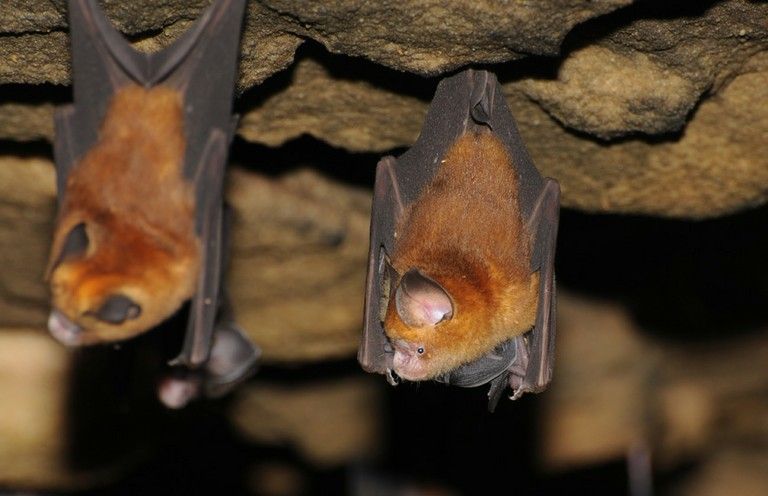The hepatitis A virus is of animal origin
Researchers uncover the evolutionary origins of the global pathogen
Advertisement
The hepatitis A virus can trigger acute liver inflammation which generally has a mild course in small children but which can become dangerous in adults. The virus, which is found worldwide, has previously been considered to be a purely human pathogen which at most is found in isolated cases in non-human primates. An international team of researchers under the direction of the University of Bonn has now discovered in a large-scale study with nearly 16,000 specimens from small mammals from various continents that the hepatitis A virus – like HIV or Ebola as well – is of likely animal origin.

Bats are evolutionary old mammals which are extremely important ecologically and are under stringent species protection. They often live in large colonies and form reservoirs for various viruses.
Marco Tschapka/Uni Ulm
An infection with the hepatitis A virus can trigger acute inflammation of the liver which generally does not cause any symptoms in children and resolves without major complications. "In tropical regions, nearly all young children are infected with the hepatitis A virus and from that time on, they are immune to this disease," says Prof. Dr. Jan Felix Drexler from the Institute of Virology at the University of Bonn Medical Centre and the German Centre for Infection Research (DZIF). By contrast, if adults become infected with the hepatitis A virus, the symptoms can be more serious, and the disease can even have a fatal outcome. The virus has been found to date only in humans and a few non-human primates. Its origins were mysterious.
15,987 specimens from 209 different species of small mammals
Virologists from the University of Bonn Hospital, together with their colleagues from several German and international research institutes worldwide, searched for viruses related to the hepatitis A virus. They investigated a total of 15,987 specimens from 209 different species of small mammals: from rodents to shrews and bats to hedgehogs. Viruses from these mammals are very similar to the human hepatitis A virus with regard to their genetic properties, protein structures, immune response and patterns of infection. "The seemingly purely human virus is thus most likely of animal origin," says Drexler. “The study enables new perspectives for risk assessments of emerging viruses by investigating functional, ecologic and pathogenic patterns instead of phylogeny only”.
The scientists' evolutionary investigations may even hint at distant ancestry of the hepatitis A virus in primordial insect viruses. "It is possible that insect viruses infected insect-eating small mammals millions of years ago and that these viruses then developed into the precursors of the hepatitis A virus," says the virologist from the University of Bonn Medical Centre.
Small mammals contribute to the preservation of the hepatitis A virus
The researcher assumes that small mammals were important hosts for the preservation and evolution of the viruses. "Otherwise the hepatitis A virus would actually have gone extinct long ago in small human populations due to the lifelong immunity of the persons once infected with it," Drexler reasons. "However, patients need not fear that they could contract a hepatitis A virus infection through bats or hedgehogs. It has likely been a very long time since humans first contracted the hepatitis A precursor virus from animals – moreover, such incidents are very rare," says the virologist from the University of Bonn Medical Centre.
Original publication
Jan Felix Drexler, Victor M. Corman, Alexander N. Lukashev, Judith M. A. van den Brand, Anatoly P. Gmyl, Sebastian Brünink, Andrea Rasche, Nicole Seggewiβ, Hui Feng, Lonneke M. Leijten, Peter Vallo, Thijs Kuiken, Andreas Dotzauer, Rainer G. Ulrich, Stanley M. Lemon, Christian Drosten, and the Hepatovirus Ecology Consortium; "Evolutionary origins of hepatitis A virus in small mammals"; PNAS; 2015



























































